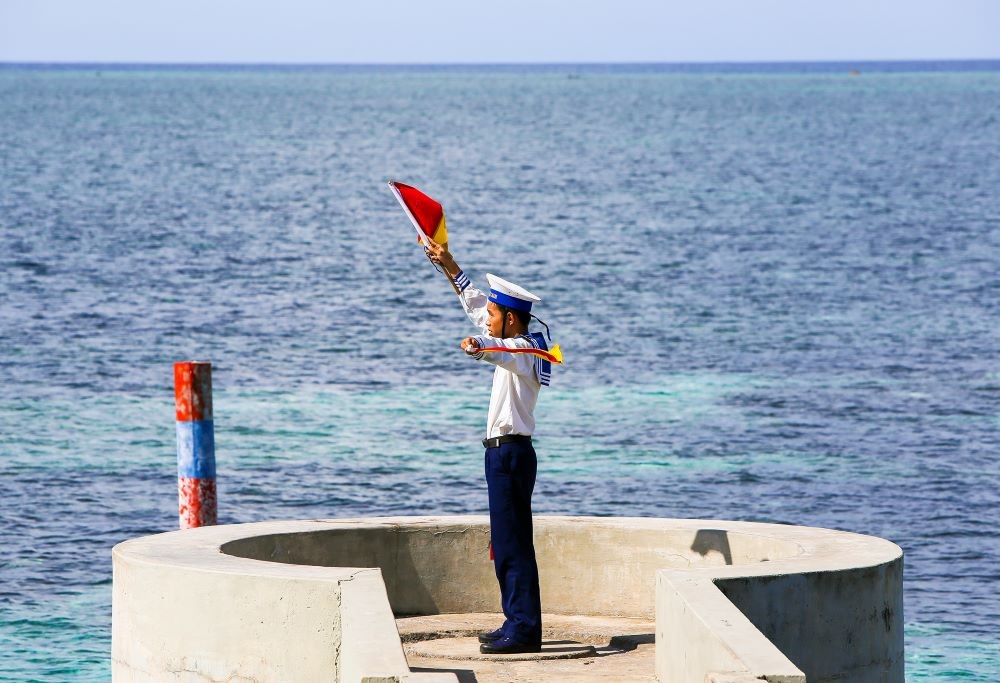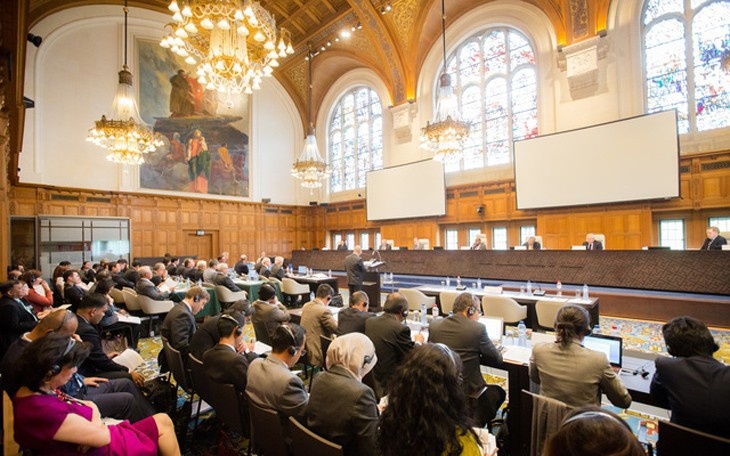
UNCLOS 1982: Establishing and strengthening the legal order at sea, maritime cooperation for peace and sustainable development (Part II)
Latest
 |
| UNCLOS specifically stipulates the rights and obligations of countries. (Photo: QT) |
Clearly defining the legal regulations of maritime areas
On the basis of international practice, countries have recognized in UNCLOS the legal status of all maritime zones, which clearly defines the scope of maritime zones under national sovereignty, sovereign rights and jurisdiction (including internal waters, territorial waters, contiguous zones, exclusive economic zones and continental shelves); sea areas outside the scope of national jurisdiction (including the high seas, also known as international seas, the international seabed and the mineral resources which are the common heritage of mankind).
UNCLOS also specifically stipulates the rights and obligations of countries. The most important maritime regulations of UNCLOS include the exclusive economic zone, continental shelf, islands, artificial structures at sea and cooperation to protect the marine environment, conserve and manage natural marine resources.
According to UNCLOS regulations on exclusive economic zones and continental shelves, all activities related to exploration and exploitation of natural resources in coastal states' exclusive economic zones and continental shelves must be regulated permission of that country; Any unlicensed activity is illegal, clearly violating the provisions of the Convention.
Establishing agencies and mechanisms to ensure implementation of the Convention
To ensure full and consistent implementation of the Convention in practice, UNCLOS established agencies and mechanisms with different roles and functions that complement each other.
The specialized agencies established under UNCLOS include: (i) the International Seabed Authority; (ii) Committee on the outer limits of the continental shelf; (iii) International Tribunal for the Law of the Sea.
In addition, the Conference of UNCLOS member states is tasked with evaluating the operation of the mechanisms established under the Convention; make decisions on annual and operating budget issues, working conditions of the above-mentioned agencies and discuss issues arising during the implementation of the Convention.
UNCLOS also specifically stipulates the mechanism for resolving disputes arising between countries in the interpretation and application of the Convention (Part XV). The dispute resolution mechanisms at UNCLOS have been used by countries in practice.
It should be noted that the dispute settlement mechanism under UNCLOS only applies to disputes that exist between states in the interpretation and application of UNCLOS (Articles 279 and 288) and is primarily a peaceful means of resolving international disputes in accordance with international law as recognized in the United Nations Charter, including diplomatic and legal processes.
Accordingly, when a dispute arises related to the interpretation and application of UNCLOS, member states are obliged to quickly exchange views regarding the resolution of the dispute through negotiations or other peaceful measures (Article 283).
If exchange and negotiation within a reasonable period of time do not achieve a satisfactory solution, the parties may agree to submit the dispute to an international arbitration body for a binding decision, which is the International Court of Justice (ICJ), International Tribunal for the Law of the Sea (ITLOS - established under Annex VI of UNCLOS) or Arbitral Tribunal (according to Annex VII of UNCLOS), Special Arbitration Court (according to Annex VIII UNCLOS). At any time, countries can make a declaration choosing one or more jurisdictions from the above four bodies.
 |
| The arbitration court in The Hague held litigation for the Philippines' lawsuit against China related to China's illegal claims in the East Sea. (Source: PCA) |
Practice has also shown that the rulings of judicial agencies under the provisions of UNCLOS, especially ITLOS or arbitral tribunals, have contributed to the correct interpretation of the provisions of UNCLOS, helping to clarify a number of remaining issues, unclear or controversial claims and actions contrary to the provisions of UNCLOS.
The effectiveness of UNCLOS implementation, like the implementation of other international treaties, in reality is not only reflects in domestic laws, policies, and national views at regional and international forums discussing on the sea but also depends on the actions of each member state in using the seas, oceans and marine resources, requiring goodwill, concern and specific measures of cooperation from each country.
All maritime disputes should be resolved by peaceful means
In some regions of the world, there still exist maritime disputes such as delimiting overlapping areas, determining the status of geographical entities at sea, sharing and exploiting marine resources, especially mineral resources.
The emergence of these disputes is inevitable due to the fact that UNCLOS allows countries to establish large maritime areas under national jurisdiction, thereby creating areas of overlapping claims between countries with different opposite or adjacent seas. The root cause is the important role of the sea and marine natural resources in the development of countries. It cannot be denied that there are maritime disputes that stem from some countries' excessive claims that are completely contrary to UNCLOS.
Facing many maritime disputes in regions around the world, the international community largely agrees that countries need to fully respect and implement UNCLOS, clarify claims and resolve disputes. Only by peaceful measures in accordance with international law, including UNCLOS, we can soon reach a satisfactory solution to the dispute between the parties involved, or in the immediate future we can find a temporary solution and move forward to achieve a fair and lasting solution to the dispute, ensuring the legal rights and legitimate interests of the parties involved.
In the context of complicated developments in the South China Sea, to ensure the maintenance of peace, stability, security, safety and freedom of navigation in the region and the world, for the common interests of the region and the international community, relevant countries need to respect the maritime legal order established at UNCLOS, respect diplomatic and legal processes, including ongoing negotiation processes, to avoid conflicts and moves aimed at eroding and downgrading the role of UNCLOS.
Countries' maritime claims need to ensure compliance with UNCLOS regulations. When there are disagreements or differences related to the interpretation and application of UNCLOS, the parties involved need to negotiate and resolve them by peaceful means, in accordance with international law, including UNCLOS. While the disputes have not been resolved, relevant countries need to respect and fully implement the Declaration on the Conduct of Parties in the East Sea (DOC), refrain from carrying out unilateral activities that may complicate the situation and increase disputes, participate in constructive negotiations to reach an effective, substantive Code of Conduct in the East Sea (COC) and in accordance with international law, including UNCLOS.
As a coastal country and member of UNCLOS, Vietnam has been making persistent efforts to peacefully resolve South China Sea issues in accordance with international law including UNCLOS. Vietnam has also been fully implementing UNCLOS since accepting the binding of UNCLOS and becoming a member state of UNCLOS. Vietnam needs to continue efforts with other member countries to promote respect for UNCLOS, while protecting the integrity and legal value of this global legal framework.
* Head of the Permanent Mission of Vietnam to the United Nations (UN), WTO and other international organisations in Geneva.









